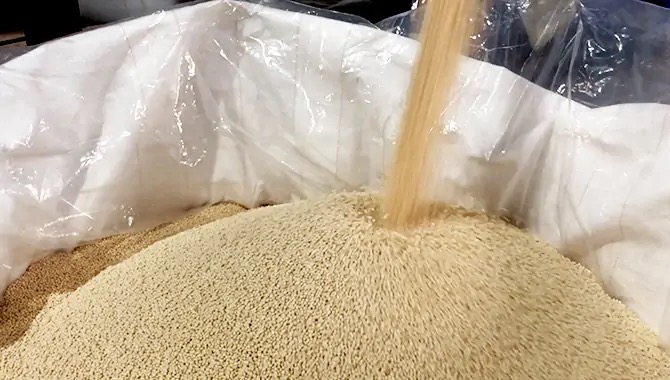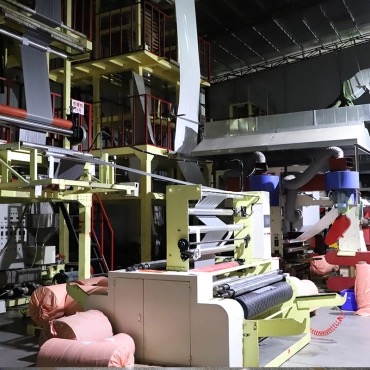In today’s world, many people and businesses are looking for greener options to replace traditional plastic bags. That’s where biodegradable and compostable bags come in. But what exactly are they made of, and how do they work?
In this article, we’ll explain what biodegradable plastic bags are made of, how they break down, and which types are best for home, retail, and commercial use.
What Are Biodegradable Plastic Bags Made Of?
Biodegradable plastic bags are made from materials that can break down naturally over time. These materials include:
- PLA (Polylactic Acid): Made from corn starch or sugarcane, used in many compostable packaging bags.
- PBAT (Polybutylene Adipate Terephthalate): A biodegradable plastic often blended with PLA to improve strength and flexibility.
- Starch-based polymers: Often used for compostable bin liners and food waste bags.
These ingredients allow the bag to degrade into natural materials like water, carbon dioxide, and biomass under the right conditions.
Note: Some bags labeled as “biodegradable” are still made from petroleum-based plastic with additives. These can take longer to break down and may leave behind microplastics.

What Are Compostable Bags?
Compostable bags are a type of biodegradable bag that meets strict standards. They break down in composting environments without leaving toxic residue. Popular standards include:
- EN 13432 (Europe)
- ASTM D6400 (USA)
Common examples include:
- Home compostable bin liners
- Compostable trash bags in bulk
- Compostable party bags for eco-friendly events
- Compostable food packaging bags
How Do Biodegradable and Compostable Bags Break Down?
Biodegradable plastic bags break down when exposed to oxygen, heat, moisture, and microorganisms. The breakdown time depends on the material and environment. For example:
- Compostable bags in industrial composters: 90–180 days
- Home compostable bin liners: 180–360 days
- Biodegradable t-shirt bags in landfill: May take years if no oxygen or moisture is present
To fully decompose, the bag must be placed in the correct environment. Home composting is ideal for certified compostable bags. Landfills are not suitable, as they lack air and microbes.

Which Types of Biodegradable Bags Should You Choose?
There are many types of biodegradable and compostable bags for different uses. Here are some common ones:
| Bag Type | Use Case | Example Keyword |
|---|---|---|
| T-shirt bags | Retail stores, supermarkets | Biodegradable plastic t-shirt bags |
| Vest carrier bags | Takeaway and delivery | Biodegradable vest carrier bags |
| Favor or party bags | Events and weddings | Biodegradable favor bags, compostable party bags |
| Bin liners | Home and office bins | 50 litre biodegradable bin liners, compostable bin liners large |
| Food storage bags | Vacuum sealing or freezer | Vacuum sealer bags biodegradable |
| Kitchen waste bags | Small bins | Biodegradable kitchen tidy bags |
| Pet waste bags | Dog poop cleanup | Amazon biodegradable dog poop bags |
When choosing, consider:
- Bag size (e.g., 10L, 25L, 50L, etc.)
- Certification (e.g., BPI, OK compost HOME)
- Whether it’s for home or industrial composting
Why Choose Compostable and Biodegradable Bags?
Using compostable and biodegradable bags helps reduce plastic pollution. Here’s why they’re better:
- Break down faster than traditional plastics
- Made from renewable resources
- Lower carbon footprint
- Safe for composting
- Support eco-friendly brand image
If you’re running a business, using compostable bags can show customers that you care about the environment. Compostable environment-friendly bags are also ideal for packaging eco-conscious products.
Where Can You Buy Biodegradable Plastic Bags?
If you’re looking for wholesale biodegradable plastic bags for sale, choose a trusted supplier like hemcbags.com. We offer:
- Bulk compostable trash bags
- Home compostable bin liners
- Biodegradable kitchen and t-shirt bags
- Customized solutions for retail and food packaging
All our products are:
- Certified compostable
- Made from sustainable materials
- Available in various sizes and thicknesses
- Shipped worldwide in eco-friendly packaging
Final Tips Before You Buy
✅ Always check certifications (BPI, EN13432, OK compost)
✅ Know the size and use of the bag
✅ Confirm if it’s home compostable or industrial
✅ Avoid greenwashing—read labels carefully
✅ Choose a supplier who specializes in compostable packaging

Conclusion
Biodegradable and compostable plastic bags are a smart alternative to traditional plastic. Whether you need party bags, dog poop bags, or large bin liners, there’s an eco-friendly option available. The key is to choose the right material, size, and certification.
Switching to compostable bags is not only better for the planet—it’s a smart business move too.

